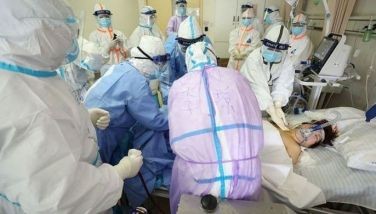Expert says NATO summit refocuses alliance
LONDON (Xinhua) - The NATO summit in Wales has refocused the alliance of 28 nations on several key areas, after a period of military involvement in Afghanistan and of introspection about what the alliance was for.
Dr Domitilla Sagramoso, lecturer in security and development in the War Studies Department, King's College, London, told Xinhua, "The summit has refocused NATO's attention in the European continent, whereas in previous summits NATO's effort were focused on trying to combat radical Islamic fighters or Al Qaeda's terrorism."
The aims of tackling radical Islamic fighters was still present and there had been a big effort to create a broad coalition of countries ready to fight against the Islamic State in Syria and Iraq.
From the point of view of the alliance, said Sagramoso, the Wales Summit had been a success because it has been a reaffirmation of the principals of the alliance - as a defensive alliance.
That strategy of defense of its own territory was always present but the focus was now on ensuring that strategy, she said.
She added, "The countries in eastern Europe which feel more vulnerable to a potential Russian incursion are feeling safer. In that respect there is a strategy: namely the establishment of a rapid reaction force, ready to act if necessary. But this is not a standing force; force deployments rotate. But it is intended clearly to send the message that NATO is behind these countries."
The agreement by the 28 nations of NATO agreed to create a Very High Readiness Joint Task Force (VHRJTF), a force up to 3,500 soldiers capable of responding within a few days to a situation.
In addition, NATO nations agreed to prepare infrastructure, designate bases, and preposition equipment and supplies for troops to be moved into the area of the alliance's eastern borders in the future.
"Although the strategy is not new. NATO developed proper infrastructure in many of these new member-states to make sure they were properly protected," said the expert.
"The circumstances until now did not call for a permanent military presence in Eastern Europe. Now, because there is a sense that there is a heightened danger, that is how it is perceived, in view of events in Ukraine, there is a clear strategy to deal with that," said Sagramoso.
She added, "I personally think Russia has no intention of grabbing land from the Baltic states and Poland, They should not feel threatened."
"I think that what is often misunderstood is the main objective of Putin in Ukraine, and that is to avoid NATO membership for Ukraine because this would imply NATO infrastructure very close to Russia's borders."
There was disagreement among NATO partner nations about the policy toward Russia, she said.
"The Poles, the Baltic states are very eager to conduct a much more aggressive and assertive policy toward Russia; whereas others in central and Western Europe are not so concerned about the Russian threat and they understand that you cannot build the security of eastern Europe at the expense of Russia's sense of insecurity," explained Sagramoso.
While Ukraine as a sovereign state could choose its own alliances, the security of Russia also had to be considered.
"There is also the right of countries to protect themselves if they feel threatened by an alliance. So one should understand that Russia also has the right to react if it feels that its own security is being threatened," she said.
Previous NATO enlargement into eastern Europe was more of a preemptive move rather than a reactive one and had "unfortunately created a sense of insecurity within Russia. The reaction occurred when Russia felt that NATO was crossing a red line" with moves in recent years towards including both Georgia and Ukraine in the alliance.
- Latest
- Trending
































